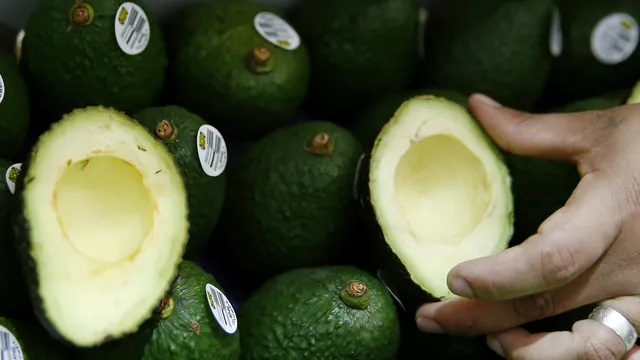The mother's diet and other lifestyle factors during pregnancy affect the developing baby.
Avocados contain specific nutrients and bioactive compounds that may help reduce the risk of future food allergies in the offspring. A recent study in the journal Pediatric Research evaluated the effect of avocado consumption during pregnancy on the risk of food allergies in children, compared to no consumption..
According to the Food Allergy Research and Education (FARE) organization, food allergies affect nearly one in 13 children. Women who eat a lot of sweets and baked foods during pregnancy may have children with a higher risk of food allergies. Similarly, a pro-inflammatory diet rich in unhealthy foods predisposes to asthma in offspring.
Conversely, allergic rhinitis, eczema, asthma, and wheezing are rare in children of mothers who ate more vegetables and yogurt or adhered to a pattern similar to the Mediterranean diet during pregnancy. Antioxidants in fruits and vegetables may explain this effect by modulating the developing immune system.
Meat products or processed meats have also been linked to allergic wheezing, while apple consumption reduces the risk of this condition. Total fruit consumption shows no such association, perhaps because each fruit has a different composition of phytochemicals.
The present prospective cohort study investigated how maternal consumption of avocado during pregnancy favorably influenced the child's risk of food allergy. One avocado contains approximately 13 g of monounsaturated fat and 9.5 g of dietary fiber, and its nutritional composition is similar to that of the Mediterranean diet. Although avocados generally contain nutrients that support eye, neural tube, and heart development in the embryo, this particular study focused on allergic outcomes.
The data is from the Kuopio Birth Cohort (KuBiCo) study, which included women who gave birth to their children between 2013 and 2022. The 2272 participants included in the final analysis are representative of all women who gave birth to their children during this period.
The quality of their nutrition was assessed using the Alternative Healthy Eating Index for Pregnancy (AHEI-P) tool. Participants were classified into two groups according to whether they consumed avocados in the first and third trimesters of pregnancy. The four allergic conditions (rhinitis, paroxysmal wheezing, atopic eczema and food allergy) in the children were reported as yes/no responses.
The mean age of the women at delivery was approximately 31 years, and most of them were giving birth for the first time. The mean body mass index (BMI) was approximately 25 kg/m2. The mean AHEI-P score was 59, indicating moderate diet quality.
Avocado eaters were older, less likely to undergo caesarean section (CS), more likely to be non-smokers and more likely to with zero or one previous birth). They had a higher score on the AHEI-P. They also breastfed longer and had a lower body mass index.
At 12 months of age, the risk of food allergies was twice as high in children of non-consumers of avocados - 4.2% versus 2.4% in those born to avocado consumers. Among women who consumed avocados, the child had an approximately 44% lower risk of food allergy at 12 months after adjustment for multiple other risk factors.
These included the mother's age at birth, education, body mass index, number of previous births, and factors related to the baby, such as placement in a neonatal intensive care unit or cesarean delivery. Other confounding factors are breastfeeding, alcohol and/or smoking during pregnancy, and the quality of nutrition.
In the crude analysis, paroxysmal wheezing affected 13.3% of children of nonconsummators versus 9.8% of those born to consummators. However, this difference decreased significantly after adjusting for all factors that may influence the outcome.
Allergic rhinitis and eczema showed no significant difference with avocado consumption in the fully adjusted model. Because these disorders may develop later, longer follow-up periods are needed to capture these outcomes, in contrast to food allergies, which typically manifest at 6-12 months when solid food intake begins.
Avocados provide antioxidants that may help reduce the likelihood of a child developing allergies by altering T-cell responses. The fiber content of avocados is also important. It can favorably alter the gut microbiome and promote beneficial intestinal fermentation, producing compounds such as short-chain fatty acids (SCFAs) that guide healthy maturation of the immune system. The monounsaturated fats in avocados may also reduce unwanted immunological activity as they are inversely associated with asthma prevalence in adolescents and adults. | BGNES

 Breaking news
Breaking news
 Europe
Europe
 Bulgaria
Bulgaria







